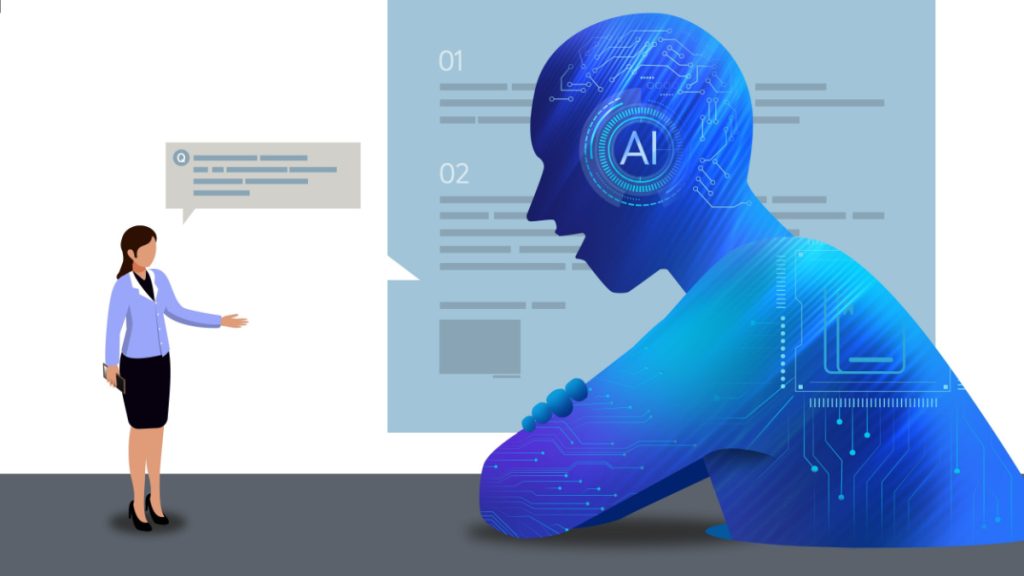
Google is advancing the field of healthcare with the development of one of the most advanced AI, Med-PaLM 2, an AI chatbot that provides expert responses to medical queries.
- The system has been trained on questions and answers from medical licensing exams and is being tested with partners like Mayo Clinic.
- Med-PaLM 2 can generate responses, summarize documents, and organize health data.
- Google’s cautious approach to releasing advanced AI programs ensures safety and protects its core search business.
Google is developing an AI program aimed at revolutionizing healthcare. The race with Microsoft intensifies as Google’s AI chatbot, called Med-PaLM 2, is designed to provide expert responses to medical queries.
The tech giant’s medical chatbot has been trained on a very specific dataset that includes questions and answers from medical licensing exams. The company began testing the system with partners such as the renowned Mayo Clinic in April. Med-PaLM 2, a second iteration of Med-PaLM, has the potential to generate responses to medical questions, summarize documents, and organize vast amounts of health data, according to Google executives and published research.
“Med-PaLM 2 was the first large language models (LLM) to perform at an “expert” test-taker level performance on the MedQA dataset of US Medical Licensing Examination (USMLE)-style questions, reaching 85%+ accuracy, and it was the first AI system to reach a passing score on the MedMCQA dataset comprising Indian AIIMS and NEET medical examination questions, scoring 72.3%,” said Aashima Gupta and Amy Waldron, Global Directors of Healthcare Strategy & Solutions at Google Cloud, in an April 2023 official blog post, A responsible path to generative AI in healthcare.
While Alphabet’s unit hasn’t disclosed when the technology will become increasingly available, some of Google’s rivals, including Microsoft, have swiftly incorporated AI advances into patient interactions. In partnership with the health software company Epic, Microsoft, for example, has developed tools using the algorithms behind ChatGPT to draft automated messages to patients.
Both Google and Microsoft envision a larger goal of building virtual assistants that can answer medical questions from patients worldwide, especially in areas with limited access to doctors. The World Health Organization (WHO) has acknowledged the potential of LLMs such as GPT-4 and their ability to provide information, communication, screening, and decision support in underserved regions.
According to an internal email reviewed by The Wall Street Journal, Google told employees in April that an AI model trusted as a medical assistant could “be of tremendous value in countries that have more limited access to doctors.”
Experts stress the importance of patient education regarding the use of AI tools and the need for transparency and evaluation as new technologies are rolled out. Customers testing Med-PaLM 2 will retain control of their encrypted data, inaccessible to Google. This move will ensure a patient’s security as sensitive information remains private and the AI remains in compliance with The Health Insurance Portability and Accountability Act of 1996 (HIPAA). It is worth noting that the tech giant has historically been cautious about releasing its advanced AI programs to the public due to safety concerns and potential impacts on its core search business.
As a matter of fact, in a research paper published back in May, Towards Expert-Level Medical Question Answering with Large Language Models, researchers from Google Research and DeepMind – a UK-based AI research lab and company acquired by Google – demonstrated the rapid progress LLMs are making toward physician-level medical question answering. However, they do acknowledge that “further work on validation, safety, and ethics is necessary as the technology finds broader uptake in real-world applications. Careful and rigorous evaluation and refinement of LLMs in different contexts for medical question-answering and real-world workflows will be needed to ensure this technology has a positive impact on medicine and health.”
It remains to be seen how HIPAA-compliant an AI can be.
Inside Telecom provides you with an extensive list of content covering all aspects of the Tech industry. Keep an eye on our Medtech section to stay informed and updated with our daily articles.